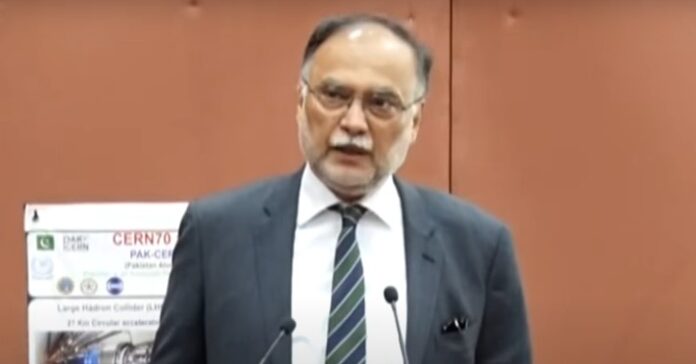Staff Report
ISLAMABAD: Minister for Planning, Development, and Special Initiatives Professor Ahsan Iqbal stated on Wednesday that social inclusion and institutional accountability must be integral parts of Pakistan’s national development agenda to ensure transparency, active public participation, and sustainable governance.
“It is imperative to make social inclusion and accountability of institutional performance part of the national development agenda,” he said while addressing the plenary session of the Aawaz-II Voice and Accountability Programme.
He said inclusion and accountability were not optional, rather the foundation of a transparent and people-centered governance model, stressing that every citizen and every community had a vital role in Pakistan’s progress.
The minister said the government was committed to giving the people’s voice a central role in the policymaking process. “The Aawaz-II programme has effectively strengthened the representation of marginalized segments, including women, youth, and persons with disabilities,” he added.
Highlighting the government’s comprehensive reform vision, Ahsan Iqbal said that the Uraan Pakistan initiative – anchored in the 5Es Framework – represented a national roadmap for transformation.
The framework, he explained, aimed to convert current challenges into opportunities, enabling Pakistan to emerge as a stronger and more resilient economy.
He said that the key pillars of Uraan Pakistan included boosting exports, advancing Digital Pakistan, promoting green energy, ensuring environmental sustainability, and fostering social equity.
“The youth remain at the heart of our national reform process,” the minister stressed, adding that Young Peace and Development Corps units had been established in 131 campuses across 42 cities to engage young people in constructive development work.
Through training programmes for youth fellows, scholars and interns, the minister said the government was ensuring practical exposure to national development processes.
Under the Empowered Youth Internship Programme, he said, more than 60,000 paid internships were being provided, while 10,000 special internships had been allocated for the youth of Balochistan.
He said the Young Development Fellows Programme was nurturing a new generation of policy professionals, while the Champions of Reforms Network was contributing expert input to national policy formulation.
Ahsan Iqbal also disclosed that the Planning Ministry was working to introduce Urdu as an optional language in the Central Superior Services (CSS) examinations to promote linguistic inclusivity.
He announced that the Aawaz-II models would be integrated into the government’s institutional systems to ensure their sustainability and long-term impact.



